Comic Illustrations by Fresh ‘n Salty
Let’s talk about… coral matchmaking!The nurseries we talked about last week from the Fresh ‘n Salty comic not only help us grow Critically Endangered corals, they also play an important role in spreading genetic complexity!To strengthen genetic diversity on coral reefs, we strategically populate coral nurseries with fragments from as many different colonies as possible. Each coral fragment is tracked from its colony of origin, through the nursery, all the way to the outplant coral reef. This thorough tracking is necessary to figure out the best places for outplanting and the most successful genetic combinations!
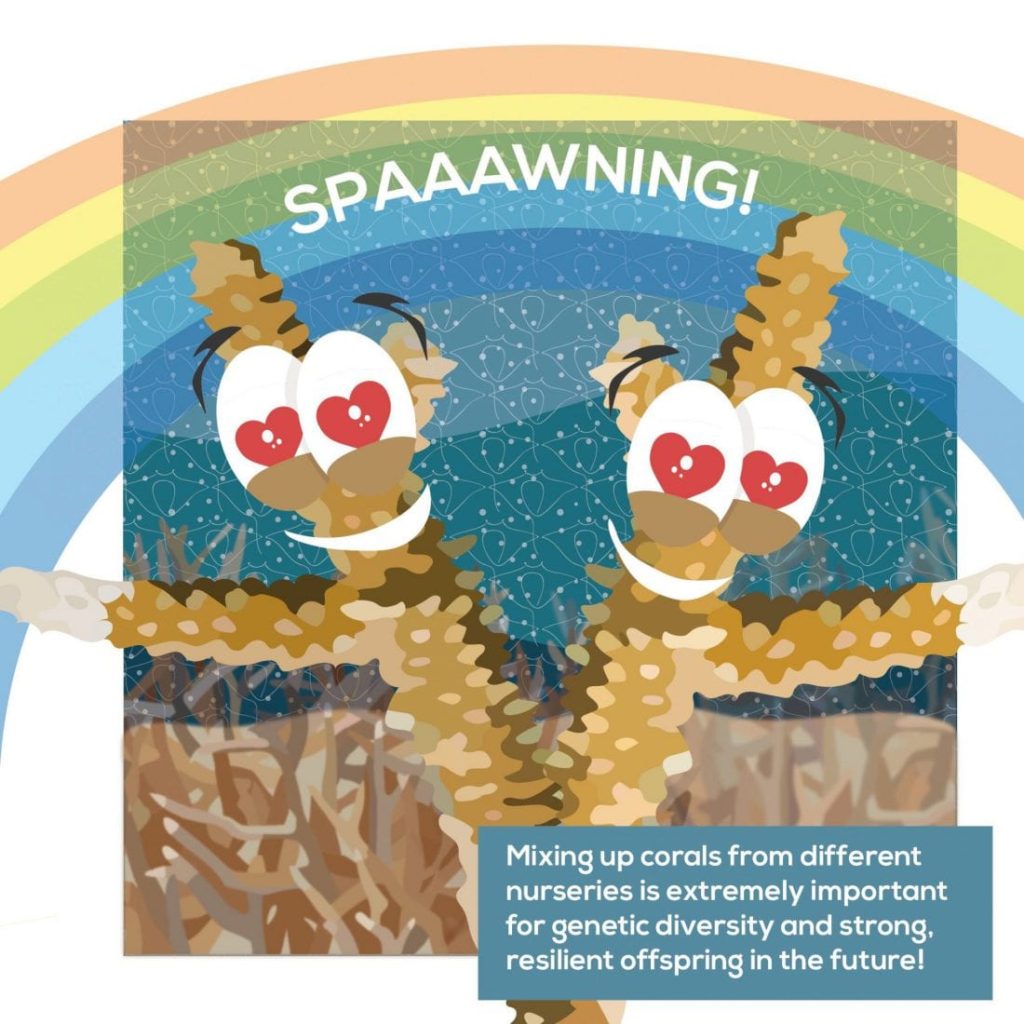
What’s the big deal with a bunch of genes anyway?Well, across all living kingdoms, diversity means progress – with endless twisting, matching and criss-crossing, the best genes are maintained and developed, while the weak ones are discarded. So the wider the base pool, the better!Led by Hayley-Jo Carr, our heroes at the Reef Rescue Network know all about it! By carefully nursing new generations of Staghorn and Elkhorn corals, they can selectively develop genotypes which are more adaptive and resilient to changing environmental conditions, such as ocean warming.We then outplant these genetically diverse coral fragments onto reefs, in hopes that when coral spawning takes place (typically around summer full moons), the eggs and sperm of many unique genotypes are mixed. When this happens, genetically superior coral larvae (i.e. baby corals) are produced and under the right conditions, seeded all over the restoration site!
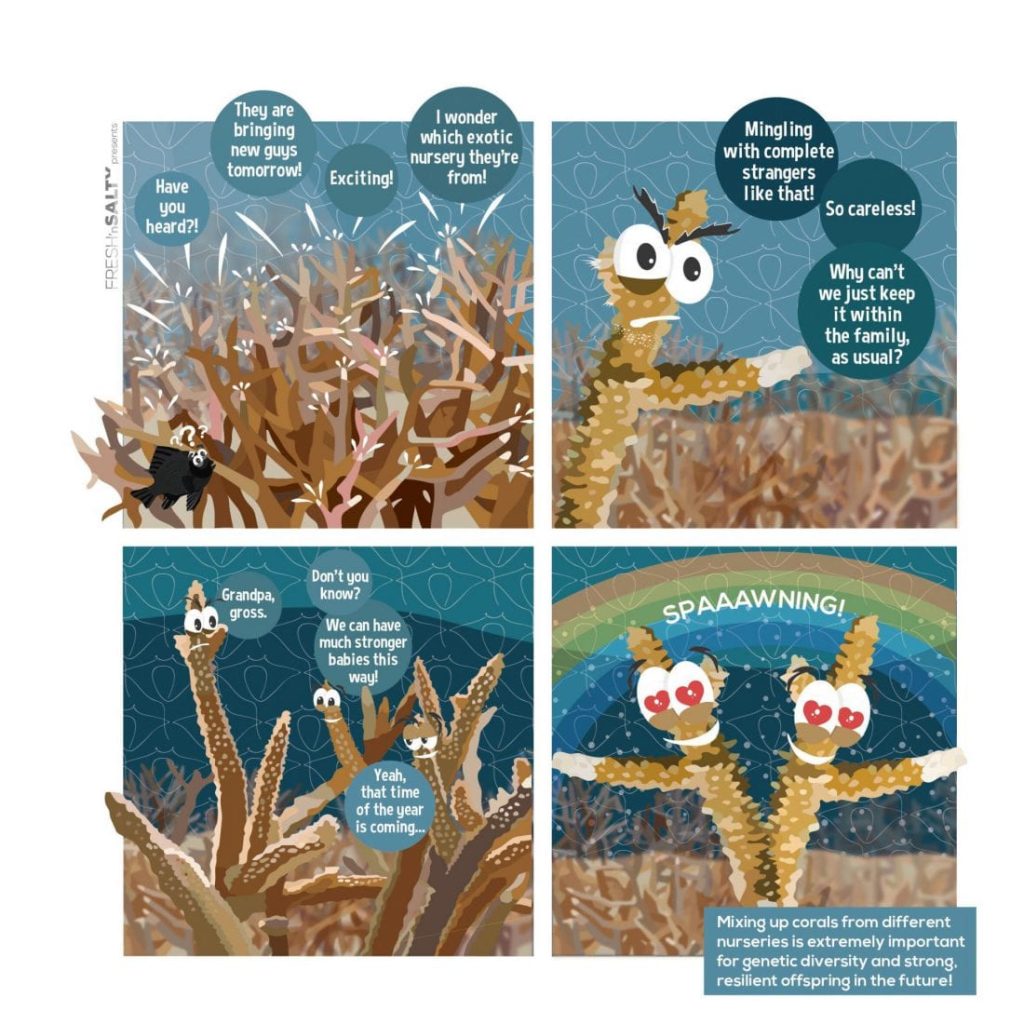
The Reef Rescue Network is a unique group brought to life by the Perry Institute in order to coordinate the efforts of local organizations in establishing, managing and monitoring coral nurseries across the Bahamas. So apart from corals, they also nurse the vital partnerships between scientists, conservationists, business and coastal communities!
How can YOU help coral reefs?
- Limit your carbon footprint
- Conserve water
- Use reef-safe sunscreen
- Do not purchase items made from coral
- Eat sustainably caught seafood
- Reduce, reuse and recycle!
- Become certified as a PADI Reef Rescue Diver and help to maintain and outplant corals!
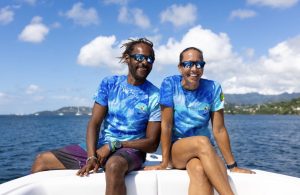
New Reef Rescue Sites Take Root in Barbados and Grenada
Barbados Blue and Eco Dive Grenada dive shop owners Andre Miller and Christine Finney (Credit: Eco Dive) Reef Rescue Network Expands to Barbados and Grenada The Perry Institute for Marine
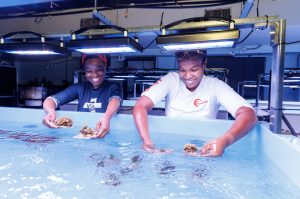
The Bahamas Just Opened a Coral Gene Bank—Here’s Why It Matters
The nation’s first coral gene bank will preserve, propagate and replant coral to reverse devastation from rising ocean temperatures and a rapidly spreading disease Video courtesy of Atlantis Paradise Island.
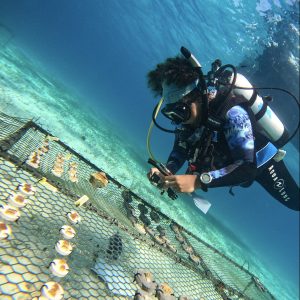
This Is What Conservation Leadership Looks Like
From Interns to Leaders: How PIMS is Powering the Next Generation of Ocean Advocates Taylor photographs coral microfragments in the ocean nursery, helping monitor their fusion into healthy, resilient colonies
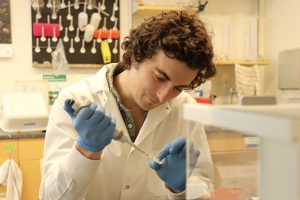
When Ocean Forests Turn Toxic
New study in Science connects chemical “turf wars” in Maine’s kelp forests to the struggles of Caribbean coral reefs — and points to what we can do next Lead author,
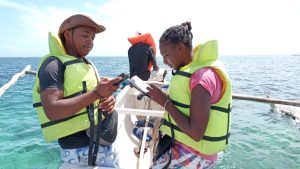
Who’s Really in Charge? Unpacking the Power Struggles Behind Madagascar’s Marine Protected Areas
Researchers head out to monitor Marine Protected Area boundaries—where science meets the sea, and local stewardship takes the lead. The Illusion of Protection From dazzling coral reefs to centuries-old traditions,
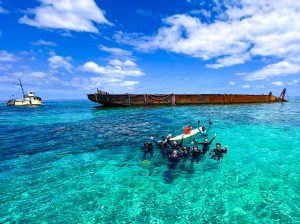
PIMS and Volunteers Step Up as Legal Battle Leaves Barge Grinding Reef in Fowl Cays National Park
Worn out but undefeated, the cleanup crew rallies around their paddleboard “workbench” in front of the stranded tug and barge—a snapshot of community grit after hours of underwater heavy‑lifting. Photo



